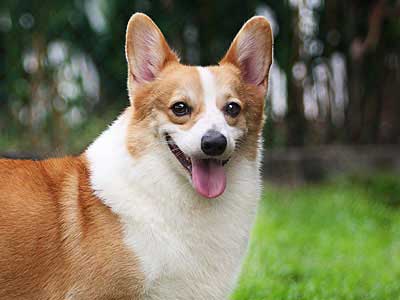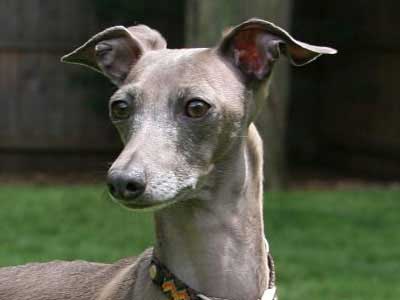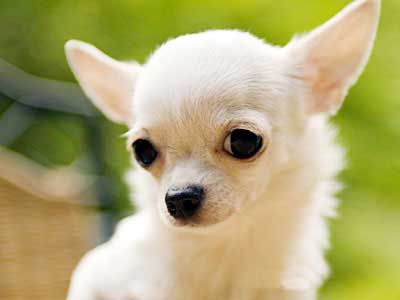Basenji
Breed Information |
|
|---|---|
| Popularity |
2022: #91 2021: #87 2020: #86 2019: #87 2018: #87 2017: #84 2016: #88 2015: #87 |
| Name | Basenji |
| Other names | Congo Dog, Congo Terrier, African Bush Dog, African Barkless Dog, Ango Angari, Zande Dog |
| Origin |  Congo Congo |
| Breed Group |
Hound (AKC:1943) Sighthounds and Pariahs (UKC) |
| Size | Small to Medium |
| Type | Purebred |
| Life span | 12-15 years |
| Temperament |
Affectionate Alert Curious Energetic Playful Intelligent |
| Height |
Male: 16-17 inches (41-43 cm) Female: 15-16 inches (38-41 cm) |
| Weight |
Male: 22-26 pounds (10-12 kg) Female: 20-25 pounds (9-11 kg) |
| Colors |
Black & White Black Tan & White Brindle & White Red & White |
| Litter Size | 4-5 puppies |
| Puppy Prices |
Average $1500 - $2000 USD A Basenji puppy typically costs between $1,500 and $3,000 though prices may vary somewhat. Factors such as a low number of puppies born each year, few breeders, the breeder's reputation, and the costs of health testing can all influence the price. |
Breed Characteristics |
|
|---|---|
| Adaptability |
2 stars |
| Apartment Friendly |
3 stars The Basenji will do okay in an apartment if it gets enough exercise. It is very active indoors and a small yard will do. The Basenji is happiest when it is kept with two or three other Basenjis; they will not fight among themselves. |
| Barking Tendencies |
1 stars Rare |
| Cat Friendly |
2 stars |
| Child Friendly |
4 stars Good with Kids: This is a suitable breed for kids and is known to be playful, energetic, and affectionate around them. |
| Dog Friendly |
2 stars |
| Exercise Needs |
4 stars The Basenji needs vigorous daily exercise. They have a tendency to become fat and lazy unless the owner is consistent about it. This breed needs a long daily walk. |
| Grooming |
1 stars Low Maintenance: Grooming is only necessary once in a while to maintain upkeep. No trimming or stripping needed. |
| Health Issues |
3 stars This breed is prone to Fanconi's syndrome (kidney problems), which must be treated the moment the symptoms are noticed. Also, it is susceptible to progressive retinal atrophy, intestinal and eye problems. Hypoallergenic: No |
| Intelligence |
3 stars Ranking: #78 Full Ranking List |
| Playfulness |
3 stars |
| Shedding Level |
1 stars Minimal Shedding: This dog will shed a negligible amount. Recommended for owners who do not want to deal with dog hair in their cars and homes. |
| Stranger Friendly |
2 stars |
| Trainability |
2 stars Difficult Training: The independence of the Basenji can make it difficult to train. It is not known for its obedience. However, Basenjis are eager to please and can learn quickly due to their high intelligence. |
| Watchdog Ability |
5 stars |
Basenji Names |
||
|---|---|---|
| Rank | Boy Names | Girl Names |
| 01 | Max | Lucy |
| 02 | Cooper | Daisy |
| 03 | Lucky | Molly |
| 04 | Oliver | Lola |
| 05 | Baxter | Pepper |
| 06 | Cody | Ellie |
| 07 | Ollie | Lulu |
| 08 | Diesel | Bailey |
| 09 | Buster | Sasha |
| 10 | Loki | Penny |
| 100 Cute Puppy Names › | ||
Overview |
|---|
|
The Basenji is square-proportioned and high on leg. It is far more slightly built and longer-legged than most other primitive breeds, giving it a good amount of speed and the ability to perform the double-suspension gallop. Its erect ears help it locate prey in thick bush and may act as heat dissipaters. Its short coat also aids in dealing with the hot climate of Africa. Some consider the basenji to have terrier-like mannerisms because it is feisty for a hound. More often it is considered catlike in mannerisms: clever, inquisitive, stubborn, independent and reserved. Its hunting roots are very evident, as it loves to chase and trail. It needs regular mental and physical stimulation, lest it become frustrated and destructive. Basenjis may be barkless, but they are not mute. They do make a sort of yodel, howl and shriek — and occasionally bark, but just one or two "fox barks" at a time. |
History |
|
The Basenji (also known as an “African Bush Dog”, “Congo Dog”, or “Congo Terrier”) is an ancient breed which can be seen depicted on stone tablets in Egyptian tombs. The modern breed originates in the African Congo (“Basenji” means “bush thing”), where they were used as pack hunters to chase game into nets. Basenjis were imported to England in the 1930’s, then to America. They increased in popularity after being featured as the title character of a popular 1950’s book and movie, “Goodbye, My Lady”. Some Basenjis from Africa were imported in the 1980’s, widening the gene pool and introducing the brindle color to the breed. |
References
- [1] ^ YouTube: Basenji Dogs 101 | Are Basenjis Good Pets?
- [2] ^ YouTube: Basenji - Must Know Facts for the Owner





